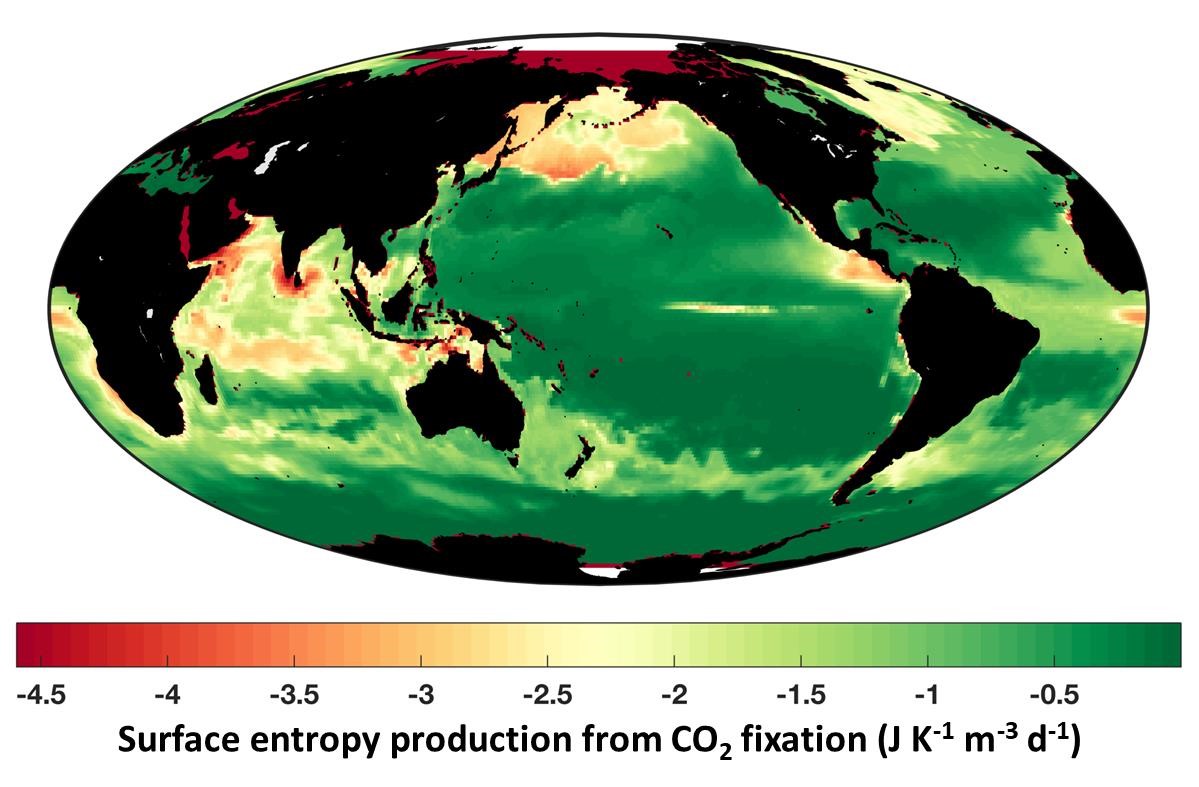Study of Marine Microbial Metabolic Expression Receives Grant Award

The Simons Foundation has awarded a collaborative grant to MBL Senior Scientist Joseph Vallino to study how local marine environments affect the organization and function of microbial communities. The grant is part of the larger CBIOMES project funded by the Simons Foundation and led by Michael J. Follows at MIT.
Vallino is applying principles of nonequilibrium thermodynamics to model how changes in light and nutrients may affect the distribution and function of bacteria and phytoplankton throughout the ocean. Recent advances in nonequilibrium thermodynamics indicate that complex systems will likely organize to maximize the flow and dissipation of energy potentials. Hurricanes, for example, form when warm ocean waters encounter cooler atmospheric air; hurricane organization hastens the dissipation of the temperature difference. Vallino is using that principle to create computer models that will predict how different ocean regions become more or less hospitable to certain microorganisms as a function of light and nutrient inputs.
 A map of world surface entropy production from carbon dioxide fixation. Credit: Joseph Vallino
A map of world surface entropy production from carbon dioxide fixation. Credit: Joseph VallinoUsing data on genomic capabilities of bacteria and phytoplankton combined with ocean circulation models and solar and chemical inputs, Vallino will model the metabolic expression of marine microbial communities in the world’s ocean under a variety of different scenarios associated with climate change. This model will be used in conjunction with other ocean process models, observations and statistical models developed by the CBIOMES collaboration team.